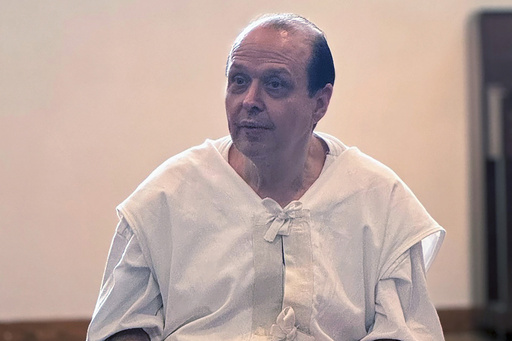HOUSTON — A coalition of legislators in Texas has formally announced the issuance of a new subpoena demanding that the state’s penal system allow death row inmate Robert Roberson to give live testimony this week regarding the state’s controversial junk science legislation.
Previously, a subpoena contributed to delaying Roberson’s execution, which was scheduled for October 17. This execution would have been the first in the nation linked to a diagnosis of shaken baby syndrome.
The House Committee on Criminal Jurisprudence stated that it had issued and served the subpoena last week, compelling Roberson to testify at a meeting scheduled in Austin for Friday.
The committee has expressed the need to hear Roberson’s account concerning a 2013 law that allows prisoners to contest their convictions based on newly discovered scientific evidence, asserting that this law may have been neglected in his situation.
“Robert’s testimony will illuminate crucial issues regarding our ‘junk science writ’ process—an avenue Texas legislators believed would facilitate reconsideration in cases like his,” stated committee chair and state Representative Joe Moody, a Democrat, along with committee member and state Representative Jeff Leach, a Republican.
The committee is currently awaiting a reply from the Texas Department of Criminal Justice. Amanda Hernandez, a spokesperson for the department, indicated via email that there is no comment available at this time.
Roberson’s attorney expressed appreciation for the opportunity to have her client heard, saying, “I sincerely hope that no obstacles will prevent him from sharing his insights with lawmakers and the public regarding his struggles to communicate his innocence.”
Roberson was originally slated to testify on October 21 under a prior subpoena. However, the Texas attorney general’s office communicated that he could only appear via videoconference to mitigate security and logistical issues related to transporting him to the state Capitol.
Both the committee and Roberson’s legal team have advocated for his in-person appearance, maintaining that video testimony would be challenging for him due to his autism diagnosis and associated communication difficulties.
Currently 58 years old, Roberson is incarcerated at the Polunsky Unit in Livingston, which is over 200 miles (320 kilometers) northeast of Austin.
In 2003, he was sentenced to death for the alleged murder of his 2-year-old daughter, Nikki Curtis. Prosecutors claimed Roberson violently shook her, whereas his defense team has contended that the symptoms displayed by the child were inconsistent with abuse and that pneumonia complications were likely the actual cause of her death.
Roberson has seen growing bipartisan support from lawmakers and experts in the medical field, who argue that his conviction was based on unreliable evidence associated with shaken baby syndrome, a term referring to significant brain trauma resulting from the shaking or harsh impact of a child’s head.
Despite facing rejection from the state parole board, various lower courts, and even the U.S. Supreme Court regarding requests to halt his scheduled execution in October, the House committee’s strategic move to issue a new subpoena just days before Roberson’s planned execution led to a legal review across multiple courts. The Texas Supreme Court ultimately upheld a stay on his execution.
In a ruling last November, the Texas Supreme Court clarified that a legislative subpoena cannot intervene in an execution but noted the committee may issue another subpoena for Roberson to provide testimony, as long as it does not interfere with any scheduled execution. No new date for Roberson’s execution has yet been determined.
Should the Texas Department of Criminal Justice fail to comply with the new subpoena, the House committee may explore “judicial relief” to ensure Roberson provides his testimony, as indicated in the Texas Supreme Court’s order.
The Texas Department of Criminal Justice and the attorney general’s office had voiced objections to the initial subpoena, claiming it would compel the penal system to violate a legitimate court order to execute a lawfully sentenced individual.



